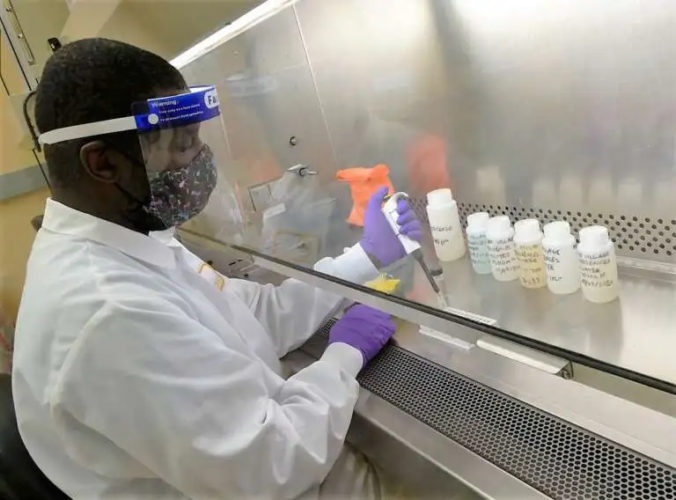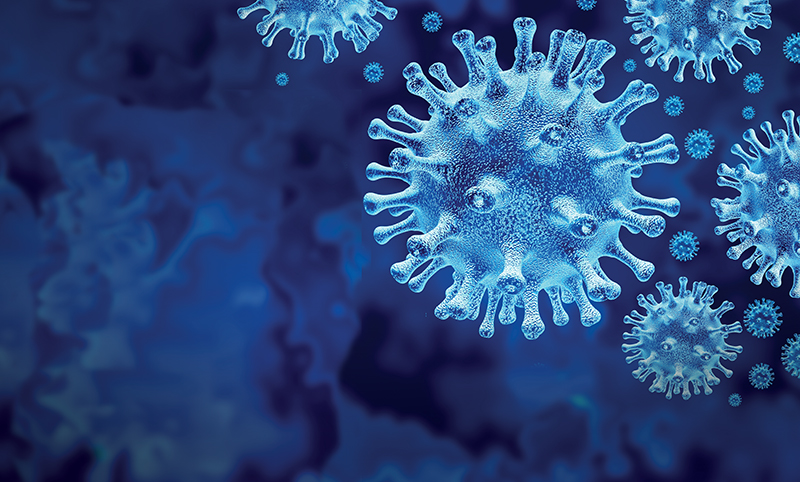A University of Guelph (U of G) research team monitoring wastewater for SARS-CoV-2 is now searching for variants.
Dr. Lawrence Goodridge is working with a team of U of G researchers that includes Dr. Ed McBean from the School of Engineering, Dr. Heather Murphy from the Department of Pathobiology, and Dr. Marc Habash from the School of Environmental Sciences. Together, they have been sampling wastewater in several municipalities and U of G residences on campus since October 2020 for RNA fragments of the virus.
“We have already begun finding variants in local wastewater,” said Goodridge. “By sequencing the viruses, we may also detect new, emerging variants that haven’t yet been identified.”
The virus can be shed in the feces of those infected with COVID-19 days before they begin to feel ill and up to two to three weeks after. Surveillance of variants in the wastewater is an additional approach to clinical testing and offers the ability to scan countless samples in a non-invasive way, said Goodridge.
“In Ontario, a percentage of clinical samples are sequenced to confirm the presence of known variants.”
One sample of wastewater can contain virus particles from thousands of people. If new variants are circulating, they will likely be found in wastewater, he added.
“Therefore, determining the genomic sequence of viruses in wastewater is a complementary approach to testing individual clinical samples,” said Goodridge. “If there are new variants that haven’t yet been detected, a new PCR test to look for those new variants could be designed for routine surveillance.”

The U of G research team was one of the first to begin surveilling campus residences’ wastewater for COVID-19 in Canada. Goodridge received funding from the University early in the pandemic to develop wastewater testing processes for measuring community-level exposure to the virus.
“From the moment this pandemic started, outstanding University of Guelph researchers like Dr. Goodridge and his team have mobilized their knowledge into action to confront this global challenge,” said Dr. Malcolm Campbell, vice president (research) at U of G. “They brought their impressive skills and world-class expertise to bear, transforming research into innovation, helping to advance this critical response to the pandemic, and are now using their ingenuity to help outrun evolving threats.”
“It is phenomenal to see this project expand its work to address SARS-CoV-2 viral variants through genomics-based wastewater surveillance,” added Bettina Hamelin, president and CEO of Ontario Genomics. “The agility in monitoring these existing and emerging variants allows us to understand the virus’s biology and how it spreads and thereby promptly inform public health measures.”









